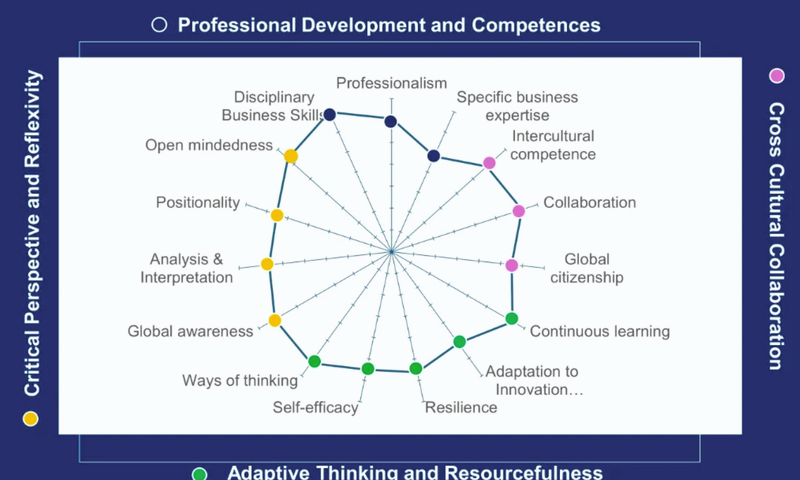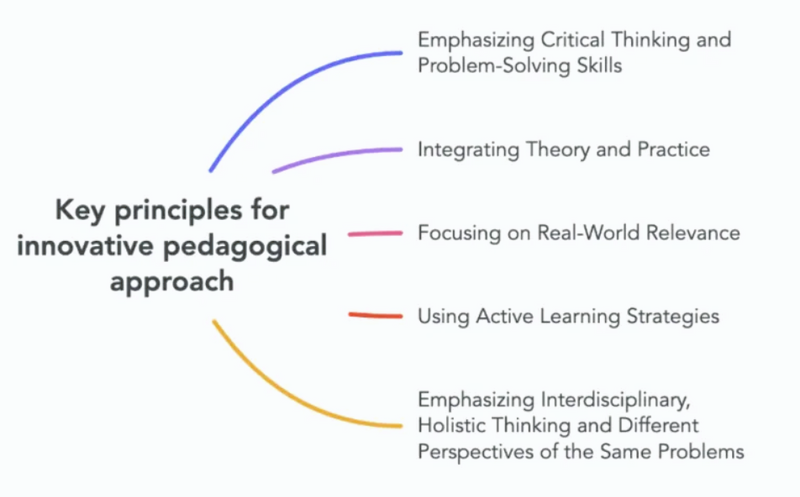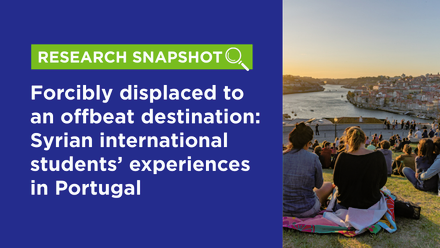From classroom to change makers: Innovating business education

The purpose of business education is changing, and with it, what and how we teach must also change. Educators must therefore adopt a new mindset to enhance the relevance of business education and deliver graduates who can act as change makers for a sustainable and just society. The United Nations Sustainable Development Goals are significantly influencing education. Business schools increasingly include ethics, responsibility, and sustainability (ERS) alongside international, intercultural, and global dimensions in their curricula. This shift is further driven by the urgency created by the volatility and uncertainty that currently characterise our world and artificial intelligence’s disruptive impact. Unsurprisingly, now businesses need new graduates who can contribute to green and digital business transformation.
At the same time, business educators must realise that this challenge weighs heavily on young people. It demands a personal and professional effort to develop the right attitude and skill set to succeed in the current global context and function as responsible global citizens and business professionals. The Erasmus+ co-funded project Innovating Business Education for Responsible Global Minds (IBE-ReGloMi) connects these business needs for future-oriented graduate attributes with innovative approaches to business education.
Future-oriented graduate attributes: in dialogue with business and students
IBE-ReGloMi is a partnership consisting of five European universities: the International Business School Maastricht Zuyd UAS (the Netherlands), Kedge Business School (France), Kozminski University (Poland), TH Cologne (Germany), Babes Bolyai University (Romania) and the EFMD Global. In collaboration with companies and students, we identified 15 future-oriented graduate attributes, categorised into four dimensions (Figure 1).

Figure 1: The IBE-REGloMi model of future-oriented graduate attributes (Faget et al., 2024)
Our conversations with companies revealed a surprising shift in focus from hard business skills to transversal skills in graduate recruitment. Although they assumed a basic level of business knowledge and skills, companies indicated they prefer graduates who can be considered self-starters, demonstrating a can-do and problem-solving approach. Or as one of the company representatives expressed, "We will teach them what they need to know on the job, what is important for us is a hands-on analytical approach, willingness to learn, good communication skills and personal integrity". Moreover, young graduates are expected to be critical thinkers, aware of their own and others’ values, norms and behaviours and how this may impact collaboration across cultural and disciplinary boundaries.
Students participating in the IBE-ReGloMi project emphasised the need for a holistic curriculum. They argued that separate courses or modules on ethics or intercultural competence made connecting these themes to disciplines like finance, marketing, supply chain or management harder. It was important for them to understand the relevance of the transversal attributes in the context of these business disciplines. They argued that the complexity of today’s problems requires an integrated approach: "As students, we need to develop the ability to consider ethical and sustainability dimensions as integral parts of business. Right now, we sometimes see them as afterthoughts or add-ons, just to meet the assessment criteria". The perspectives of businesses and students have important implications for educators. To innovate business education, they need to re-imagine what students have to learn and how to engage with them to spur their development as change makers.
Innovative pedagogical approaches: imagining future business education
Our dialogue with businesses and students enabled the IBE-ReGloMi partners to develop key principles for curriculum design, delivery, and assessment (Figure 2). These principles highlight the change needed in business education to develop graduates who can navigate current turbulent times and make responsible business decisions based on societal and ecological grounds.

Figure 2: IBE-ReGloMi Key Principles for Innovative Pedagogical Approaches (Gudkova & Wojtowicz, 2024)
Experiential, real-life, and self-directed learning are central to these principles. Furthermore, the curriculum needs to develop into a collaborative space for learning, with students and businesses as co-creators.
In addition, these key principles allow for contextualisation. Each higher education institution partner operates according to its own national and institutional requirements and within diverse cultural contexts, where lecturers have varying degrees of flexibility to change and innovate the curriculum. Although business schools have already been embedding real-life business cases into the curriculum, the example of positioning students as young consultants and encouraging them to complete a study programme primarily through collaboration with companies is an innovative approach that may not be feasible for every institution. However, these key principles can also be applied at the individual course or module level. Another example is the approach to introduce activities like ‘street experience,’ where students actively process ERS phenomena discussed in class by analysing personal interactions with people on the street.
As a consequence, changing educator roles
Re-imagining the curriculum has prompted the partners in IBE-ReGloMi to reconsider their roles as lecturers and coaches. What attitudes and skills do we need to further innovate business education and produce this new type of graduates? These pertinent questions and more were discussed at the final IBE-ReGloMi conference on 11 and 12 June at the International Business School Maastricht. Visit the project’s website to learn more about the conference and discussions.







